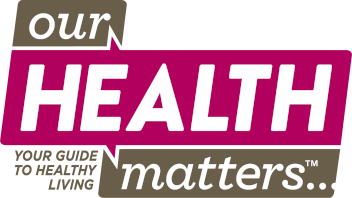
By Dr. Robert Lee Hill,
Community Consultant
In the United States, healthy families are essential for the health of our communities, cities, States and our nation as a whole. The foundation of health in a family’s present circumstance determines the prospects for health and positive growth across generations.
Numbers MATTER
The factors impacting a family’s health include a multitude of numbers, from the zip codes where we are born and live and worship, to the addresses of our schools and work places, to the number of parks and playgrounds available to our children and youth, to our ages and the status of our blood pressure and the nature of our diets.
A family’s proximity to a grocery store is as crucial to health as the quality and accessibility of a healthcare provider. The reliability of an accessible public transportation system is as important to one family as annual medical exams are to another.
The rate of gun violence affects one family’s health as much as, and, in some cases, more than regular dental care impacts another family’s health. All of which is to say that social determinants of health impact everyone’s quality of life. Enhanced access to quality education, healthcare, affordable housing, transportation, and employment can raise the quality of life for all people.
Two important determinants of health are exposure to Adverse Childhood Experiences (ACEs) and exposure to reading. “ACE” (Adverse Childhood Experiences) assessments have become very useful for improving the health of families. Some examples of ACE are:
Childhood abuse, which includes emotional, physical, and sexual abuse; neglect, including both physical and emotional neglect; and growing up in a household where there was substance abuse, mental illness, violent treatment of a mother or stepmother, parental separation/divorce or an incarcerated household member.* Social workers, school officials, medical professionals, and the general public now explore the number of Adverse Childhood Experiences and Adverse Community Environments that families encounter and can predict with an impressive measure of accuracy the health and life prospects of families. Lessening the trauma caused by adverse factors and introducing positive factors have been shown to radically improve the overall health of families.
“The 30 Million Word Gap” was a study of poor kids and their more well-to-do counterparts. The results highlighted how important vocabulary attainment is for brain development in children from infancy to age three.** I once heard a pediatric neurologist declare that the best prescription he could write for the health and wellbeing of children under the age of three is for parents to read aloud to their children twenty minutes a day.
Knowing more about the impact of the ACEs and the need for our children to hear words from caring adults are but two tasks in the quest for better health and life outcomes for all families.
SOURCES: *American Journal of Preventive Medicine, June 2019
**University of Chicago Center for Research Informatics/30 Million Words
Dr. Robert Lee Hill is Minister Emeritus of Community Christian Church, where he served for more than 30 years. He is also Community Consultant with the Kauffman Foundation, with a focus on community engagement with public education. He is the author of ten books, most recently, ALL YOU NEED IS MORE LOVE.





